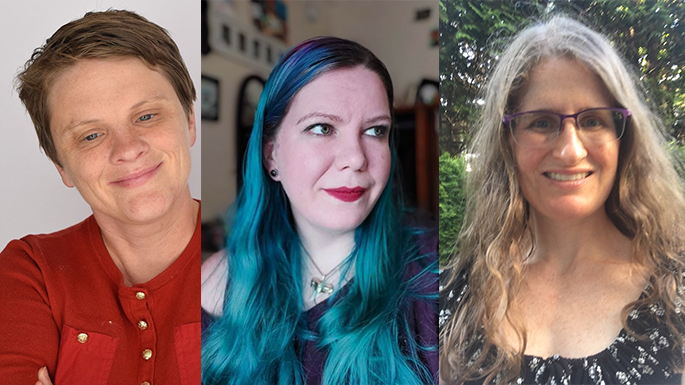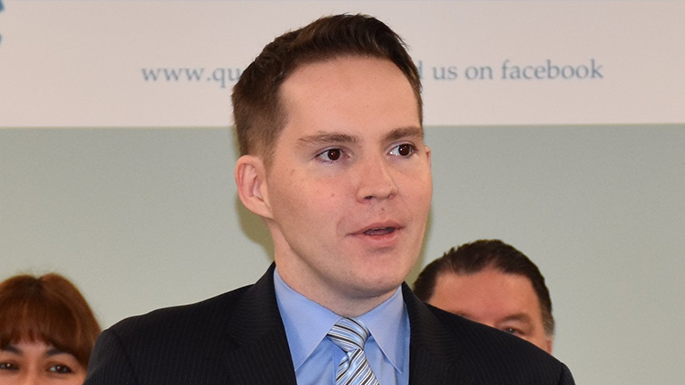|
Studies have shown that being loved could be considered one of our most fundamental needs as human beings, so it’s no surprise the autism community has a lot say when it comes to love, relationships and everything in between.
In this edition of E-Speaks, you’ll hear from autistic adults, parents of autistic adults and advocates within the autism community as they discuss finding love, overcoming communication challenges, navigating romantic relationships and much more.
In our own words: Navigating relationships on the spectrum

In this blog, you’ll meet Miyah Rose, Brigid R. and Natalie B.- three autistic women who share stories of their personal journeys and provide unique perspectives about love and relationships, dating and how healthy boundaries and self-care can make you an even better partner.
Two families share their autistic loved one’s dating journeys

Parents of adults with autism all desire for their child to have a happy and fulfilling life with someone they love. That’s why when Dan G. recently expressed his desire to find a girlfriend and eventually get married, his parents Emily and Michael decided they’d do everything they could to help. Lisa E. has also taken an active role in helping her son Ira meet someone special and work on his relationship skills. Learn more about Dan and Ira's stories of love.
Self-advocate Kerry Magro discusses falling in love on the autism spectrum

For most of his life, Kerry Magro struggled with picking up social cues, engaging in small talk and understanding the many unspoken intricacies of dating. Today, the best-selling author, public speaker and self-advocate is still looking for that special someone to share his life, but he’s also helping others along the way. Read Kerry's story in this blog post and read his review of Netflix’s “Love on the Spectrum: Season 2”.
Study reveals insights into the sexuality of autistic adolescents and adults

Newly published research reveals significant differences in sexual orientation and activity between autistic and non-autistic people across the lifespan. As the largest study on sexuality in the autism community, the results show that autistic adolescents and adults are less likely to engage in sexual activity and are more likely to have diverse sexual orientations than non-autistic adults. Learn more.
How to speak with your adolescent about puberty, sex and relationships

Puberty can be a time of confusing or intense emotions for autistic youth. In some cases, the physical and emotional changes of puberty may seem out of sync with a person’s social and academic development, making it difficult for parents to explain what is happening to their pre-teen. Autism Speaks has developed a Tool Kit to help parents better understand what their child may be experiencing and gain the skills and confidence they need to speak with their child about puberty, sexuality, body changes and healthy romantic relationships. Download the Tool Kit.
Local events and information
  


|